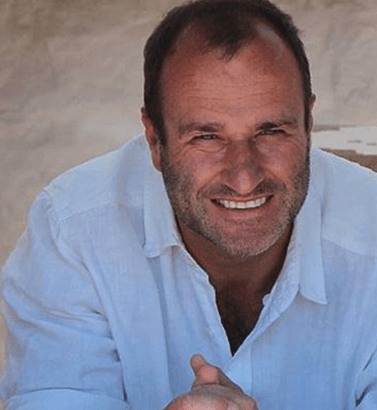

Self-confessed paymaster-turned-whistleblower in Namibia’s multimillion “Fishrot” corruption saga, Marén de Klerk, is a member of a syndicate including two cabinet ministers who manipulated the amendment of that country’s Marine Resources Act in order to run a fraud scheme, the Paarl magistrate’s court heard on Thursday.
De Klerk was arrested a week ago by the Directorate for Priority Crime Investigation (the Hawks) and the South African Police Services in Paarl during a meeting with the National Prosecuting Authority which he had willingly attended.
In an affidavit, investigative officer Captain Willem van der Heever, who is based at global police organisation Interpol’s national central bureau in Pretoria, said De Klerk was a flight risk and “is likely to resume his unlawful activities”, should he be granted bail.
The affidavit, read by state advocate Marésa Engelbrecht, alleges that De Klerk was part of a syndicate which carried out fraudulent and corrupt activities involving over N$120 million.
Citing the chief investigating officer at Namibia’s anti-corruption commission, Andreas Kanyangela, the state submitted to the court that De Klerk acted as paymaster by laundering amounts of N$81 million and N$26 million which were meant for government objective fish quotas.
De Klerk allegedly registered Celax Investment Number One as a vehicle to channel proceeds of the fish quotas to the co-accused persons and entities via the trust account he managed for the state departments.
Those implicated in the Fishrot matter include Namibia’s former fisheries minister Bernhardt Esau, former justice minister Sacky Shangala, former National Fishing Corporation of Namibia (Fishcor) chairperson James Hatuikulipi, former Fishcor chief executive Mike Nghipunya and 20 others.
When the Mail & Guardian interviewed De Klerk earlier this year regarding a matter in which he is a complainant against a disbarred lawyer, he said Shangala had personally approached him to manage a trust account due to distrust in his department.
De Klerk maintained his innocence during his bail application on Wednesday, saying he had unwittingly participated in the corrupt activities of his co-accused.
In its evidence submitted to court on Thursday, the state could not provide details of any assets or bank accounts operated by De Klerk, saying the investigative officer “was not granted enough time” to do so.
The state is opposing bail on the basis of “the seriousness of the offences and the heavy penalties that can be imposed on De Klerk”. According to the arrest warrant issued by the high court in Windhoek, which the M&G has seen, De Klerk faces a maximum penalty of 100 years in prison or a fine not exceeding N$1 billion or both.
De Klerk is wanted by the Namibian government for corruption, fraud, theft and money laundering.
“There is a likelihood that the accused, if released on bail, will undermine, jeopardise the objectives or the proper functioning of the criminal justice system, including the bail system,” Engelbrecht told the court, adding that De Klerk had been sought by Interpol since February 2022.
The state says De Klerk travelled to several places in South Africa last year. A month after the warrant for his arrest was issued, he visited his children in Krugersdorp and Mpumalanga, staying until August. He then stayed in Hermanus before residing with his fiancée in Stellenbosch from September until his arrest on 1 June.
Engelbrecht reiterated: “There is no way that Interpol could know he was there, therefore, the search for Mr de Klerk went on.”
However, the magistrate remarked on Monday that the police had De Klerk’s phone number and, at the time the arrest warrant was issued, two officers knew where he resided.
The state is arguing that De Klerk is not a whistleblower, as he claims, but uses the tag as a vehicle to justify his movement because of presumed threats against his life.
Ben Asia, representing De Klerk, said the state had not presented credible evidence to prove the accused would jeopardise or breach his bail application. De Klerk holds passports for both Namibia and South Africa as he has dual citizenship. The defence said he would comply with all the bail proceedings imposed by the court.
Senior magistrate Morajee Naik reserved his ruling on whether to release De Klerk on bail, pending his extradition hearing, to Friday.
Namibian authorities, including officials from the office of the prosecutor general and its anti-corruption commission, were in court on Thursday but declined to give details regarding the matter.